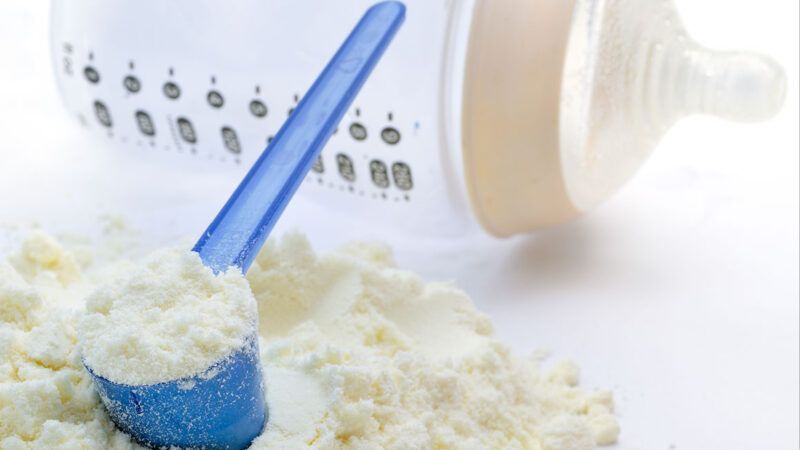Review: The FDA's Awful Labeling Regulations Made the Baby Formula Shortage Worse
Elaborate labeling requirements blocked the importation of direly needed European baby formula.

For months, the U.S. has been in the midst of a baby formula shortage, leaving parents panicked as they confront stores with sparsely stocked shelves and limits on how much they can buy. This is largely driven by a nationwide recall of Similac and other brands of Abbott Labs formula made at a plant in Sturgis, Michigan, and possibly linked to bacterial infections.
Allowing Americans to buy baby formula imported from the European Union could help alleviate the shortage. But many popular E.U.-made formulas can't be sold in the U.S. and will be confiscated at the border if discovered.
The prohibition has far more to do with the Food and Drug Administration's (FDA) nitpicking than with nutritional quality. A 2019 study published in the Journal of Pediatric Gastroenterology and Nutrition examined how 16 popular European baby formula brands measured up to FDA labeling and nutrient requirements. "Listed nutrients fell within FDA requirements in 15 of 16 formulas," found the researchers. Yet "none met all FDA label requirements."
By some measures, the E.U. has more stringent nutritional requirements for formula than the FDA does. Many American parents find European brands preferable for various reasons. But they're still barred from buying these formulas—except on the black market—because their labels aren't quite perfect by U.S. regulatory standards.
The ban seems especially ill-considered given the late spring shortage of baby formula in the U.S., and especially unhelpful in light of the safety concerns with formulas the FDA does regulate.
This article originally appeared in print under the headline "Baby Formula."


Show Comments (13)